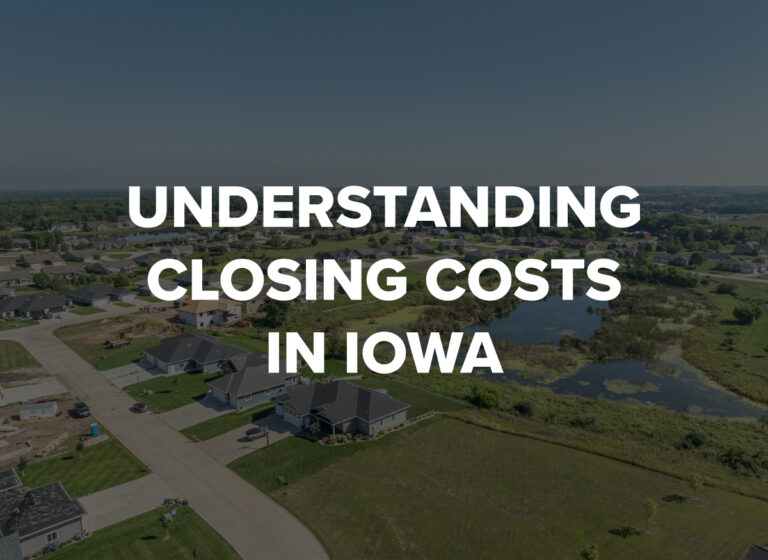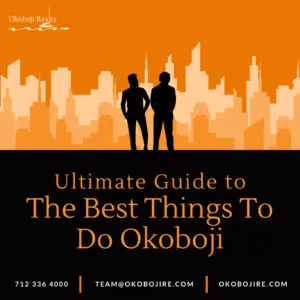Purchasing a home is an exciting milestone, but it’s also a significant financial investment. As you move forward with your home-buying journey in Iowa, understanding the closing costs associated with the transaction is crucial. Closing costs are the fees and expenses that come with finalizing the purchase of a property, and they can vary based on the price of the home, the lender, and the location. Being prepared for these costs will ensure a smooth closing experience, without any last-minute surprises.
In this blog, we’ll explore what closing costs are, how much they typically run in Iowa, and what both buyers and sellers can expect to pay. We’ll also share practical tips on how to navigate these expenses effectively.
What Are Closing Costs?
Closing costs are the collection of fees, taxes, and other expenses paid at the end of the real estate transaction when ownership of the property is officially transferred from seller to buyer. These costs often include lender fees, title-related charges, insurance, taxes, and prepaid expenses. Because they can add up quickly, understanding what they cover is an important part of preparing for homeownership.
In Iowa, closing costs typically range from 2% to 5% of the home’s purchase price. For example, if you’re buying a home for $250,000, your closing costs could fall between $5,000 and $12,500. While these costs are in addition to your down payment, they are a necessary part of finalizing the sale.
How Much Are Closing Costs in Iowa?
According to a 2021 report by ClosingCorp, Iowa’s average closing costs were about $1,803 for a home priced at $156,726. However, this figure does not include loan origination fees or private mortgage insurance, which means the true total can be several thousand dollars higher. Today, most Iowa buyers should plan for somewhere between $4,000 and $10,000, depending on the property’s value and the type of loan.
Compared to other states, Iowa’s closing costs are on the lower end of the spectrum, which is one reason the state remains an attractive option for homebuyers. Even so, because there are many variables involved, it’s wise to budget conservatively.
Who Pays Closing Costs in Iowa?
In Iowa, the buyer typically pays most financing-related costs, such as appraisal fees, loan origination fees, and inspection charges. Meanwhile, sellers are usually responsible for paying real estate commissions, transfer taxes, and the buyer’s title insurance.
That said, many of these costs are negotiable. In a competitive market, buyers may offer to cover additional expenses to sweeten their offer. Conversely, in a buyer’s market, sellers may agree to cover part of the buyer’s costs to help close the deal.
Common Closing Costs for Buyers in Iowa
Here’s a breakdown of the most common expenses that homebuyers in Iowa should expect to encounter:
1. Loan Origination Fees
Loan origination fees are charged by the lender for processing your mortgage application, underwriting, and preparing the necessary paperwork. In Iowa, these fees generally range from 0.5% to 1% of the loan amount. For instance, on a $200,000 loan, origination fees could be between $1,000 and $2,000. Since these vary by lender, it’s important to ask for a detailed breakdown before moving forward.
2. Appraisal Fees
Before a lender approves your mortgage, an appraisal is required to confirm the property’s fair market value. In Iowa, appraisals typically cost $300 to $500. Because this fee is usually paid upfront, buyers should be prepared for it early in the process.
3. Credit Report Fee
Lenders will also pull your credit report to evaluate your financial reliability. While relatively small compared to other costs, this fee can be up to $200 per applicant.
4. Title Search and Abstract of Title
Unlike most states, Iowa does not allow title insurance. Instead, buyers receive an abstract of title, a detailed history of the property’s ownership. A real estate attorney then provides a title opinion, certifying that the property has a clear title. This process usually costs $200 to $400 for the search and additional attorney fees for the opinion. Because this step is essential to ensure legal ownership, it cannot be skipped.
5. Escrow Fees
Escrow fees are charged by the title company or closing agent to hold funds securely during the closing process. In Iowa, these fees usually range from $300 to $700, often split between buyer and seller.
6. Home Inspection Fees
While not mandatory, inspections are highly recommended. A general inspection usually costs $300 to $500, while specialized inspections (radon, pest, or septic) may add to that total. Inspections can save buyers thousands in the long run by revealing potential issues before the purchase is finalized.
7. Prepaid Expenses
Prepaid costs include items such as homeowners insurance, property taxes, and mortgage interest. For example, you may need to pay several months of property taxes or insurance premiums upfront so your lender can establish an escrow account. These prepaid expenses vary widely but are essential for budgeting.
8. Recording Fees
Recording fees ensure that the transfer of ownership is officially documented with the county. In Iowa, this cost is relatively small, usually between $50 and $100.
9. Homeowners Association (HOA) Fees
If your new property is part of an HOA, you may owe prorated dues, transfer fees, or application charges at closing. These vary depending on the community.
Common Closing Costs for Sellers in Iowa
Sellers also encounter closing costs, though they differ from the buyer’s expenses. Some of the most common seller costs include:
- Real estate agent commissions: Typically 5% to 6% of the sale price.
- Title opinion and abstract updates: Required for transferring ownership.
- Transfer taxes: Iowa’s real estate transfer tax is $0.80 per $500 of the purchase price, though this is often the seller’s responsibility.
- Prorated property taxes: Sellers must pay for the portion of the year they owned the home.
- HOA dues: If applicable, any unpaid dues or assessments must be settled.
Tips for Reducing Closing Costs
Although closing costs are unavoidable, there are several ways to minimize them:
- Shop Around for Lenders – Different lenders charge different fees. Comparing loan offers can save you hundreds, if not thousands.
- Negotiate with the Seller – Request seller concessions, especially in a buyer’s market, to cover part of your costs.
- Use Assistance Programs – The Iowa Finance Authority and other organizations offer grants and programs to help cover down payments and closing costs.
- Review Your Loan Estimate Carefully – Lenders must provide a Loan Estimate within three days of your application. Scrutinize this document to avoid surprises.
- Question Junk Fees – Some lenders may charge unnecessary fees, such as processing or administrative charges. Don’t hesitate to push back.
Final Thoughts
Closing costs in Iowa may feel overwhelming at first, but with the right preparation, they don’t have to be a stumbling block. By understanding the typical fees involved and planning ahead, you’ll be able to budget wisely and avoid last-minute stress.
Work closely with your real estate agent, lender, and title company to ensure you have a clear picture of what to expect. With careful planning, you’ll be ready to take that final step toward homeownership in Iowa—confidently and without surprises.
At Okoboji Realty, we’re here to guide you through every stage of the buying or selling process. If you’re ready to start your real estate journey, reach out to our team today—we’ll make sure your closing is as smooth and stress-free as possible.
Source Links:
https://www.newhomesource.com/learn/closing-costs-iowa/
https://www.sold.com/real-estate-tips-advice/how-much-are-closing-costs-in-iowa




